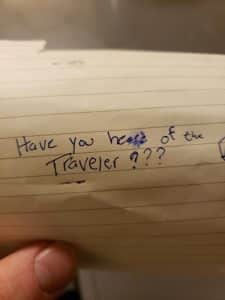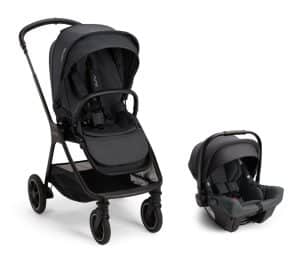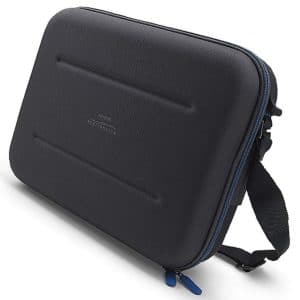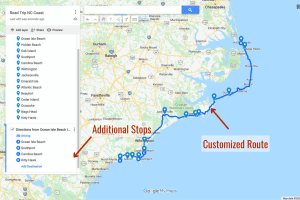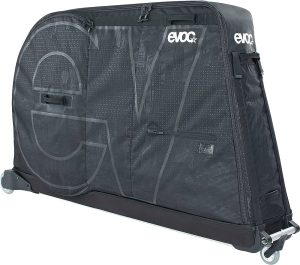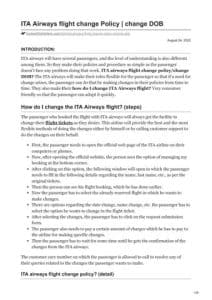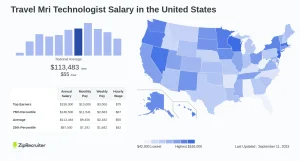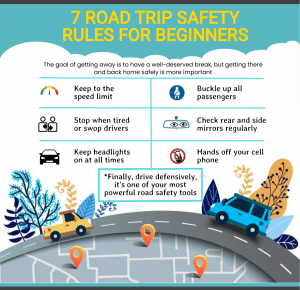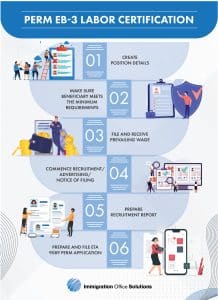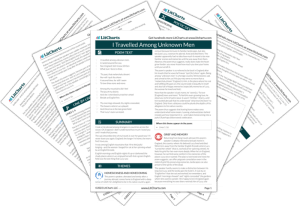Welcome to Hosteliest, your one-stop blog for everything Hotels and Travel. In today’s post, we’re exploring the question: “Can a DACA recipient travel to Hawaii?” Stay with us, as we unravel this intriguing topic.
Title: Can a DACA Recipient Travel to Hawaii? Discovering the Possibilities.
Can a DACA recipient travel to Hawaii? This is a pressing question for many DACA recipients, especially those harboring dreams of tropical islands and sun-soaked sandy beaches. But fear not! The answer is more encouraging than you might think. In this article, we’ll take a deep dive into the subject and shed light on the nuances involved.
Firstly, let’s briefly touch upon what DACA is. DACA (Deferred Action for Childhood Arrivals) is an American immigration policy that allows certain individuals – who came to the United States as children and meet several key guidelines – to receive a renewable two-year period of deferred action from deportation and be eligible for a work permit.
So, back to our main question. Can a DACA recipient travel to Hawaii? Yes, they can! Thankfully, DACA recipients are allowed to travel within the Unites States, which indeed includes the mesmerizing islands of Hawaii. Please note that while Hawaii may seem like a foreign land due to its unique culture and distinct location, it is very much part of the U.S territory.
However, as with everything in life, there are considerations to keep in mind while making travel plans as a DACA recipient. Let’s delve further into this.
Travel Documents
While traveling within the U.S., you should always carry your Employment Authorization Document (EAD) and state-issued ID or driver’s license. These documents may serve as proof of lawful presence in the country and can save you any unnecessary hassles during your journey.
Public Transportation
Taking public transportation, like a plane or bus, may require additional identification. Often, a state-issued ID or driver’s license will suffice. However, it’s always a good idea to reach out to the transportation company directly for information on required documents.
In Case of Emergencies
Although not common, if an emergency lands you before immigration officials, having a copy of Form I-821D (consideration of Deferred Action for Childhood Arrivals) is beneficial. This would help you prove that you are a DACA recipient and not subject to immediate deportation.
Travel Outside Mainland United States
In general, DACA recipients can travel freely within the U.S., but this does not include its territories or other countries. Nevertheless, there are a few exceptions including certain parts of Caribbean, Guam, and the Mariana Islands. But remember, always check with legal advice before making such travel arrangements.
Extended Stay In Hawaii
Should you fall in love with Hawaii and wish to extend your stay, remember that, as a DACA recipient, you are still subject to specific requirements, like being gainfully employed. So make sure to keep a tab on your work situation.
Wrapping it up, Hawaii is indeed within reach for DACA recipients. It gives a wonderful opportunity to experience its unique culture, breathtaking beauty, and warm people. Just ensure all your documents are in order and your rights understood before embarking on this enchanting journey.
Remember, can a DACA recipient travel to Hawaii? Yes, absolutely! As they say in Hawaii, “E komo mai” – welcome! Let nothing hold you back from experiencing the Aloha spirit.
Table of Contents
ToggleExploring Paradise: A Comprehensive Guide for DACA Recipients Travelling to Hawaii
The Aloha State: Hawaii
Known for its lush tropical landscapes, stunning beaches, and vibrant culture, Hawaii is a paradise that offers more than a traditional beach vacation. As a DACA recipient, embarking on your Hawaiian journey should be both exciting and stress-free!
Selecting the Ideal Hotel
Accommodation preferences can vary from person to person but one thing remains constant – comfort. The key is finding a hotel that does not only provide a roof over your head but also contributes to your overall Hawaiian experience. Widely acclaimed hotels like The Royal Hawaiian, Four Seasons Resort Oahu at Ko Olina, and The Modern Honolulu offer top-notch services with a mix of local flavor.
Travel Documents for DACA Recipients
As a DACA recipient, it’s crucial to understand the travel requirements before flying to Hawaii. Luckily, travel within the United States does not require any special permission or advance parole for those with DACA status. Your Employment Authorization Document (EAD) and a state-issued ID or driver’s license will suffice.
Exploring the Islands
Hawaii is an archipelago, each island possessing its distinct features. Oahu is known for bustling Honolulu and iconic Waikiki Beach. Maui offers luxury resorts, the famous Road to Hana, and Haleakala National Park. Venture to the Big Island for active volcanoes, or take it slow on the laid-back islands of Molokai and Lanai.
Experiencing Hawaiian Culture
Hawaiian culture is rich and inviting. Attend a traditional luau, learn about the importance of Ohana (family), or try your hand at a hula dance class. Don’t forget to pay respects to the history and people of Hawaii by visiting the Polynesian Cultural Center or Pearl Harbor.
Gastronomic Adventure
Your Hawaiian trip won’t be complete without indulging in their local cuisine. From fresh poke bowls, flavorful kalua pig, to the traditional Hawaiian plate lunch, embark on a mouthwatering journey that is as much a part of the Hawaiian experience as its beaches and mountains.
Preserving Paradise
With its fragile ecosystems and endangered wildlife, Hawaii has hefty laws and regulations to protect its natural resources. Respecting the local environment and culture is not just a courtesy but a necessity.
As you plan your Hawaiian getaway, remember that this guide serves as a starting point. The true essence of Hawaii lies in its ability to surprise and inspire you at every turn!
Understanding DACA and Its Implications on Travel
The Deferred Action for Childhood Arrivals (DACA) is an immigration policy that grants specific protections to individuals who were brought to the United States as children. A critical aspect to know about DACA is that it does not necessarily provide inherent rights to travel freely, even within the country’s borders.
DACA Recipients Traveling to Hawaii: Is It Possible?
Yes, in essence, a DACA recipient can travel to Hawaii without facing any legal implications. This is because Hawaii is a U.S. state and not considered international travel. The potential issue arises when DACA recipients look to travel internationally, where re-entry into the U.S. may not be guaranteed. But for internal travel, like a trip to the island paradise of Hawaii, there should be no issues if they carry the appropriate identification such as a driver’s license or a Employment Authorization Document (EAD).
Tips for DACA Recipients Traveling to Hawaii
When planning your journey, remember that while under DACA status, you are still under certain restrictions. Always carry proper identification with you during travel. Though Hawaii is a part of the United States, the fact it’s an island may require additional security measures at airports. Also, consider informing trusted individuals about your travel plans. This way, they are aware of your whereabouts and can provide assistance if needed. Finally, ensure you stay updated with any changes in immigration laws that might affect your DACA status or your travel plans.
Frequently Asked Questions (FAQ)
“As a DACA recipient, will I encounter any legal issues or travel restrictions when visiting hotels in Hawaii?”
As a DACA recipient, the good news is that traveling to Hawaii should not pose any legal or immigration issues. This is because Hawaii is a part of the United States, and domestic travel within the U.S does not usually require any immigration checks. However, be aware that you still need to carry proof of your DACA status, such as your Employment Authorization Document (EAD).
When visiting hotels, it’s important to know that hotels do not typically require information about immigration status. They will ask for identification such as a driver’s license or passport but this is mainly to confirm your identity and age.
In terms of travel restrictions related to COVID-19, it’s always best to check the latest updates, as Hawaii has enforced strict travel protocols in response to the pandemic. You might need to provide negative COVID-19 test results or quarantine upon arrival, depending on the current policies.
Nevertheless, remember that while DACA provides lawful presence, it does not provide lawful status, so if you leave the continental U.S (which includes Alaska) and travel to any U.S territory or foreign country (excluding Canada and Mexico under certain circumstances), you would be considered to have left the U.S and may have difficulty returning. However, this does not apply to Hawaii as it is a U.S state.
As always, it is recommended to consult with an immigration lawyer before making travel plans to ensure you have the most accurate and up-to-date information.
“What should a DACA recipient be aware of when planning a vacation to Hawaii?”
Planning a vacation to the tropical paradise of Hawaii should be an exciting time. As a DACA recipient, there are a few considerations to bear in mind to ensure a smooth travel experience.
Firstly, you must be aware that Hawaii is a part of the United States, so traveling there doesn’t require any additional immigration procedures compared to traveling within the continental U.S. You won’t need a passport or visa for your journey, but it’s crucial to keep your identification and DACA documentation at hand.
The most important thing to remember is, always keep your Employment Authorization Document (EAD) with you throughout your travels. This document issued by USCIS provides proof of your work authorization under DACA.
Secondly, note that while the Transportation Security Administration (TSA) accepts EADs as valid identification at security checkpoints, having additional forms of ID, such as a driver’s license, could be beneficial.
Furthermore, it is essential to stay updated on the current policies regarding DACA since they can change. Changes in these policies could affect your ability to travel freely, even within the U.S.
Finally, planning your accommodation and activities in advance will allow for a stress-free vacation. There are many reputable hotel chains in Hawaii to choose from. The islands also offer a wide range of activities to enjoy, such as beach outings, hiking, and cultural tours.
Remember, as long as you’re fully aware of the requirements and your rights as a DACA recipient, your trip to Hawaii should be memorable and hassle-free.
“Are there specific procedures or precautions that a DACA recipient needs to take when booking a hotel and traveling to Hawaii?”
As a Deferred Action for Childhood Arrivals (DACA) recipient, traveling within the United States should not pose an issue. However, there are still some factors you may want to consider when booking a hotel and traveling.
1. Identification: Most hotels require a form of government-issued ID at check-in. While DACA does not provide an ID, recipients often have valid state-issued ID or driver’s licenses which should suffice.
2. Air travel documentation: Within the U.S., air travel will usually require the same forms of ID mentioned above. Remember that the USCIS explicitly states that DACA approval does not grant legal status in the U.S., but transportation security authorities recognize the Employment Authorization Document (EAD) issued to DACA recipients as a valid form of identification.
3. Understanding your rights: As a DACA recipient, you should familiarize yourself with your rights ahead of travel. These include the right to remain silent if questioned about your immigration status, the right to refuse a search of your personal belongings, amongst others.
4. Staying Informed: Keep up-to-date with any changes to legislation or policy regarding DACA recipients. The political landscape can sometimes shift quickly, so staying informed is crucial.
5. Travel Insurance: Travel insurance should be considered to protect against unforeseen cancellations, medical expenses, and other travel-related problems.
In conclusion, while there aren’t any specific extra measures for a DACA recipient to take when booking a hotel and traveling domestically, being aware of your rights and having proper identification (like your EAD) is essential. Always double-check the current political situation regarding DACA recipients’ rights to avoid potential difficulties.
In conclusion, DACA recipients can indeed travel to Hawaii without any immigration-related issues. It is important to note that Hawaii is part of the United States and there are no immigration checkpoints or requirements necessary for domestic travel within the U.S. Therefore, as long as a recipient’s DACA status is currently valid, they can freely travel to Hawaii and enjoy its breathtaking beauty and warm hospitality. They can revel in the comfort of the island’s numerous hotels and partake in the diverse, culturally-rich experiences it offers. To ensure a smooth trip, it is advisable to carry appropriate identification and stay updated on current travel advisories and guidelines. Traveling as a DACA recipient may have its challenges, but with adequate preparation, the journey can be as enjoyable and fulfilling as any other.

















